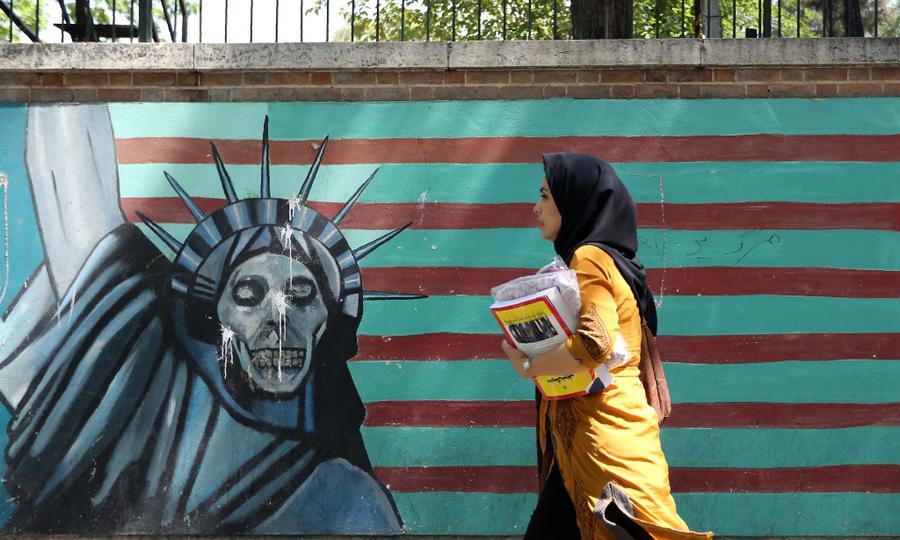Kourosh Ziabari – Asia Times: Iranian Foreign Minister Javad Zarif posted a video to Twitter earlier this month of an Iranian TV show, in which a despairing mother complains the US sanctions have made it impossible for her to find prosthetic legs for her small, paralyzed son. She addresses both Iranian President Hassan Rouhani and President Donald Trump, whom she believes are responsible for her predicament.
While the US in recent days sanctioned Zarif – Iran’s top diplomat – it has insisted that sanctions are not targeting the Iranian people and their ability to purchase medicine. Credible accounts from regular Iranians encountering hardship – desperately searching for medicine in local markets and online – tell a very different story.
For Mahnaz Movahedzadeh, a 31-year-old language translator in the northern city of Rasht caring for his ailing parents, the US sanctions represent a grave life challenge.
“My mom has been suffering from knee pain for several years and she has to use a specific platinum brace. The Iranian brace is of low quality and the American version that is worth $800 is not available in the market due to the sanctions,” Movahedzadeh told Asia Times.
He also talked about the struggles of his father: “It’s been a few months that my dad is suffering from depression. The price of psychiatric medicine imported from European countries is exceptionally high, or worse, they cannot be found in pharmacies and we should use the Iranian replacements, which are mostly ineffective or have many side effects.”
US Secretary of State Mike Pompeo has said on several occasions that the Iranian government is the main target of sanctions – and food and medicine are exempt. But with banks and financial institutions refusing to handle transactions, growing shortages of medicine are inevitable.
Social media SOS
In recent months, Iranians have taken to social media platforms to ask their fellow citizens living in other countries for help with their medical needs. They are asking Iranians abroad to buy rare medicine for them and bring them with them when they find a chance to travel to Iran.
Fatemeh Beykpour tweeted on June 16 about her quest for Bisoprolol, a beta-blocker used to treat high blood pressure. The drug is known by the trade name Concor. She offered to buy it from anyone in possession of the medicine or who could find it elsewhere. The tweet, posted on June 16, was retweeted 387 times.
Alireza Majidi, himself a physician, tweeted on January 12 about the difficulties he faced in finding Hydroxyurea capsules for his mother. The anti-cancer agent is used to treat leukemia and other cancers. His tweet was shared 335 times.
On June 14, an account named Arash tweeted about his frantic search for Pegaspargase, an antineoplastic agent used for the treatment of cancer in white blood cells – also known as acute lymphoblastic leukemia. According to Arash’s tweet, his seven-year-old son suffers from the disease. His tweet has yet to gain traction.
Out of options
Local production of medicine has also been severely disrupted.
Tehran-based Pars Isotope Company is the sole manufacturer of nuclear medicine and radioisotopes in Iran, which are utilized to diagnose and treat different types of cancer. The US government targeted the company with sanctions for its alleged links to the Atomic Energy Organization of Iran in 2018. Since then, thousands of Iranians using its products have been in limbo, not knowing how to procure the drugs they previously bought from this company. The firm previously imported raw materials from nuclear reactors in Russia and Poland, but is now constrained by its place on the US blacklist.
The Trump administration’s sanctions against Iran are so all-encompassing and widespread that can be interpreted as a means of warfare. It is impossible to minimize their human cost unless a major diplomatic shift occurs.
Parsian Bank, one of the few Iranian financial institutions meeting global standards for anti-money laundering and combatting terrorism financing, was added to the Treasury Department’s blacklist in October 2018 over alleged links with IRGC – now recognized as a foreign terrorist organization by the US government. It was believed to be the largest financial institution in Iran handling international transactions related to medicine.

